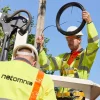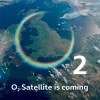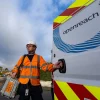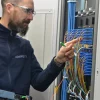Car Crash Leaves Norfolk UK Village Without Broadband for 2 Weeks
A number of homes in the South Norfolk village of Marlingford were left without fixed line broadband and phone access for over two weeks after a car (Mini Cooper) crashed into one of Openreach’s (BT) local telegraph poles on 6th November, causing significant damage to both the pole and its underground cables.
According to the EDP24, around 50 people along Bawburgh Road and Mill Road were affected by the outage. The problem has been particularly bad for some residents as the area suffers from weak mobile reception (more so with some mobile operators than others), which has meant that they tend to rely on the fixed line service.
One local is reported as saying that several Openreach vans did turn up with equipment to repair the pole, but they allegedly left soon after because no authorisation had been received to close the road. The good news is that most of the local homes are now back online.
Advertisement
A Spokesperson for Openreach said:
“The majority of properties in Marlingford have now had their telephone and broadband service restored. Due to the severity of the damage caused by the traffic accident, to our pole and cables, there are a few outstanding properties that need to be re-connected. We are doing everything we can to get this work finished today.”
Telecoms infrastructure faces many hazards, often from unpredictable elements like the weather but also from thieves and vehicle accidents. Unsurprisingly most such infrastructure tends to be built near streets and so every once in awhile a cabinet or pole will meet their demise at the business end of a vehicle accident (examples here, here and here).
In such situations it’s not uncommon for more rural areas to be left without connectivity for several days or even weeks, although telegraph poles are usually a lot easier to tackle than accidents that involve damage to complicated street cabinets (all sorts of tedious issues with underground cables and power supply can arise from the latter). In this case it appears as if an admin delay or error has also hampered the repair work.
In theory the major ISPs should also be providing affected customers with compensation (upon request), although this won’t become an automatic requirement until 2019 when Ofcom’s new compensation scheme is formally introduced (here).
Meanwhile it’s unclear what happened to the woman who was driving the Mini, although we hope she is recovering.
Advertisement
Mark is a professional technology writer, IT consultant and computer engineer from Dorset (England), he also founded ISPreview in 1999 and enjoys analysing the latest telecoms and broadband developments. Find me on X (Twitter), Mastodon, Facebook, BlueSky, Threads.net and Linkedin.
« £6.85bn for UK Broadband and 5G Infrastructure Upgrades by 2021















































Comments are closed